YOUR BROWSER IS OUT-OF-DATE.
We have detected that you are using an outdated browser. Our service may not work properly for you. We recommend upgrading or switching to another browser.
Date: 14.09.2023 Category: general news, international cooperation, science/research/innovation
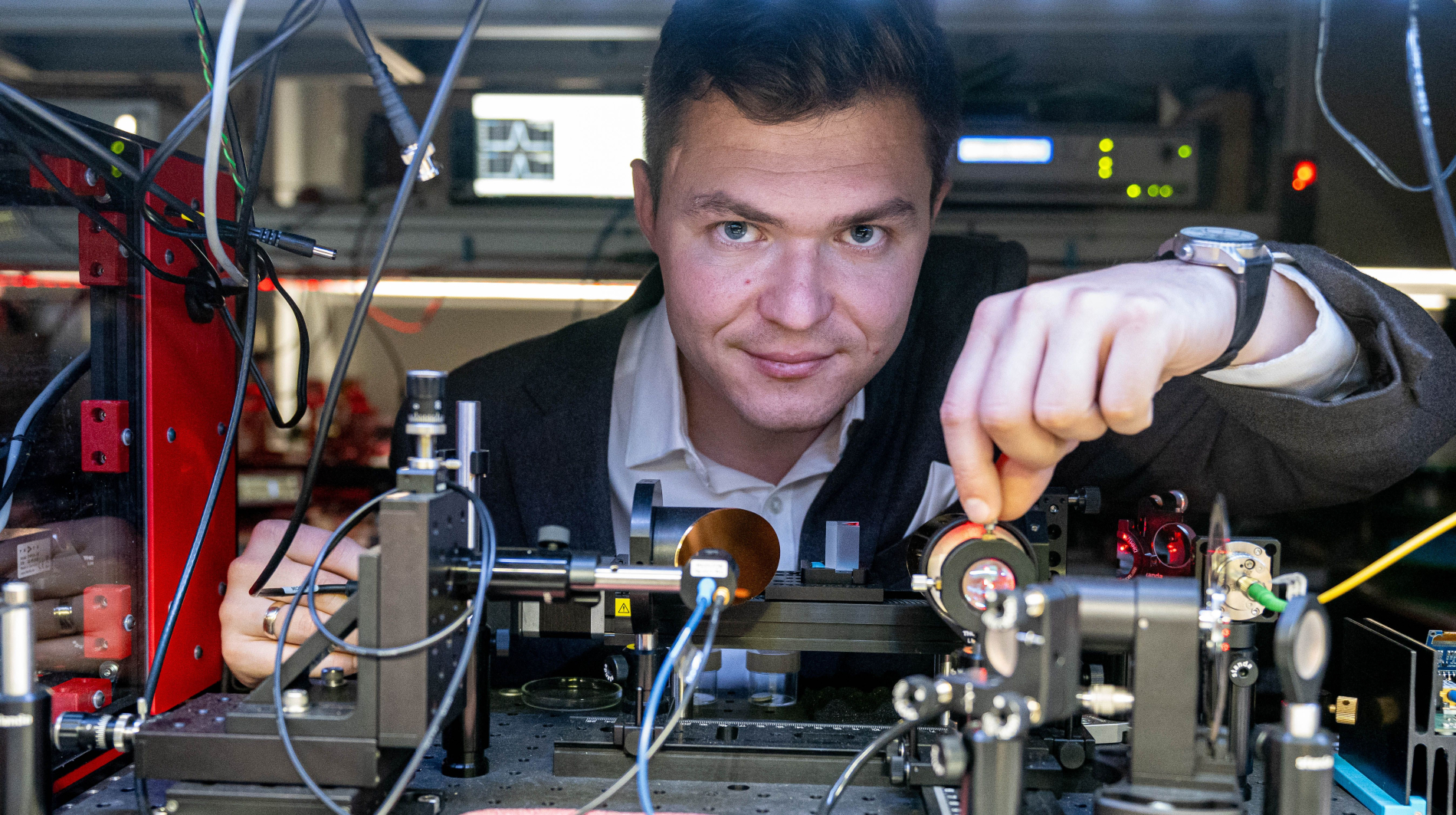
Łukasz Sterczewski, PhD, Eng. from the Faculty of Electronics, Photonics and Microsystems has become the first researcher in the history of our university to win a Starting Grant awarded by the European Research Council (ERC). His research will be concerned with the development of terahertz wave technology.
Funding under the ERC Starting Grants is awarded to young researchers, two to seven years after the award of their doctoral degrees, to carry out cutting-edge projects with high development potential. The participants have a maximum of five years to complete their research.
In the previous editions of the programme, the European Research Council has awarded grants to 41 people from Poland. This time, two entries from Poland have been awarded and, for the first time, funding went to a scientist from Wrocław University of Science and Technology (the second grant went to a scientist from Warsaw University of Technology). The amount to be spent on the project “TeraERC – Chip-Based Room-Temperature Terahertz Frequency Comb Spectrometers" submitted by Łukasz Sterczewski, PhD, Eng., totals 1.5 million EUR.
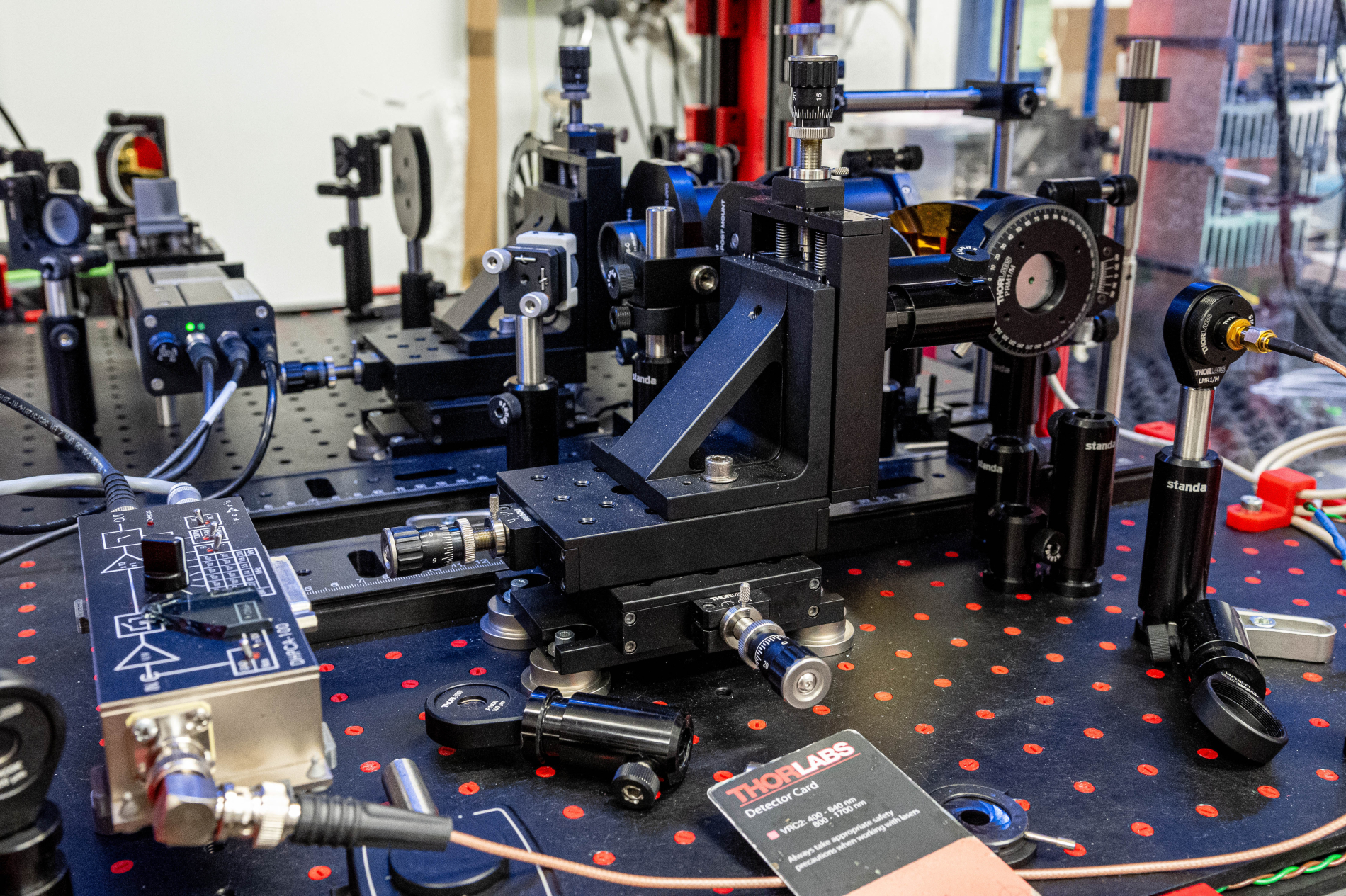 Terahertz waves are one of the least studied parts of the electromagnetic radiation spectrum. Researchers around the world are trying to find ways to use them more widely and effectively, and if they succeed, the result could be technological breakthroughs in many fields, including medicine, security, and space exploration. “Terahertz waves (THz), is an area of the electromagnetic spectrum that has characteristics of both classic radio waves and light. This gives THz waves many unique properties,” says Łukasz Sterczewski, PhD, Eng. “Therefore, a combination of two different disciplines is needed to harness them. One of these is electronics, where we have microwaves and radio waves, and the other is photonics, i.e. the world of optics and light waves,” he adds.
Terahertz waves are one of the least studied parts of the electromagnetic radiation spectrum. Researchers around the world are trying to find ways to use them more widely and effectively, and if they succeed, the result could be technological breakthroughs in many fields, including medicine, security, and space exploration. “Terahertz waves (THz), is an area of the electromagnetic spectrum that has characteristics of both classic radio waves and light. This gives THz waves many unique properties,” says Łukasz Sterczewski, PhD, Eng. “Therefore, a combination of two different disciplines is needed to harness them. One of these is electronics, where we have microwaves and radio waves, and the other is photonics, i.e. the world of optics and light waves,” he adds.
These types of waves are invisible, so they cannot be visualised as easily, but their use provides a lot of valuable information. Such technologies are used in areas such as airport scanners, which can scan a passenger non-invasively and check for items including hidden weapons.
“Since they have a higher frequency than classic microwave radiation, they allow high-resolution imaging and, in addition, carry chemical information. So, if someone is trying to smuggle drugs or other illegal substances on board an aircraft, can detect it using terahertz waves,” explains the scientist.
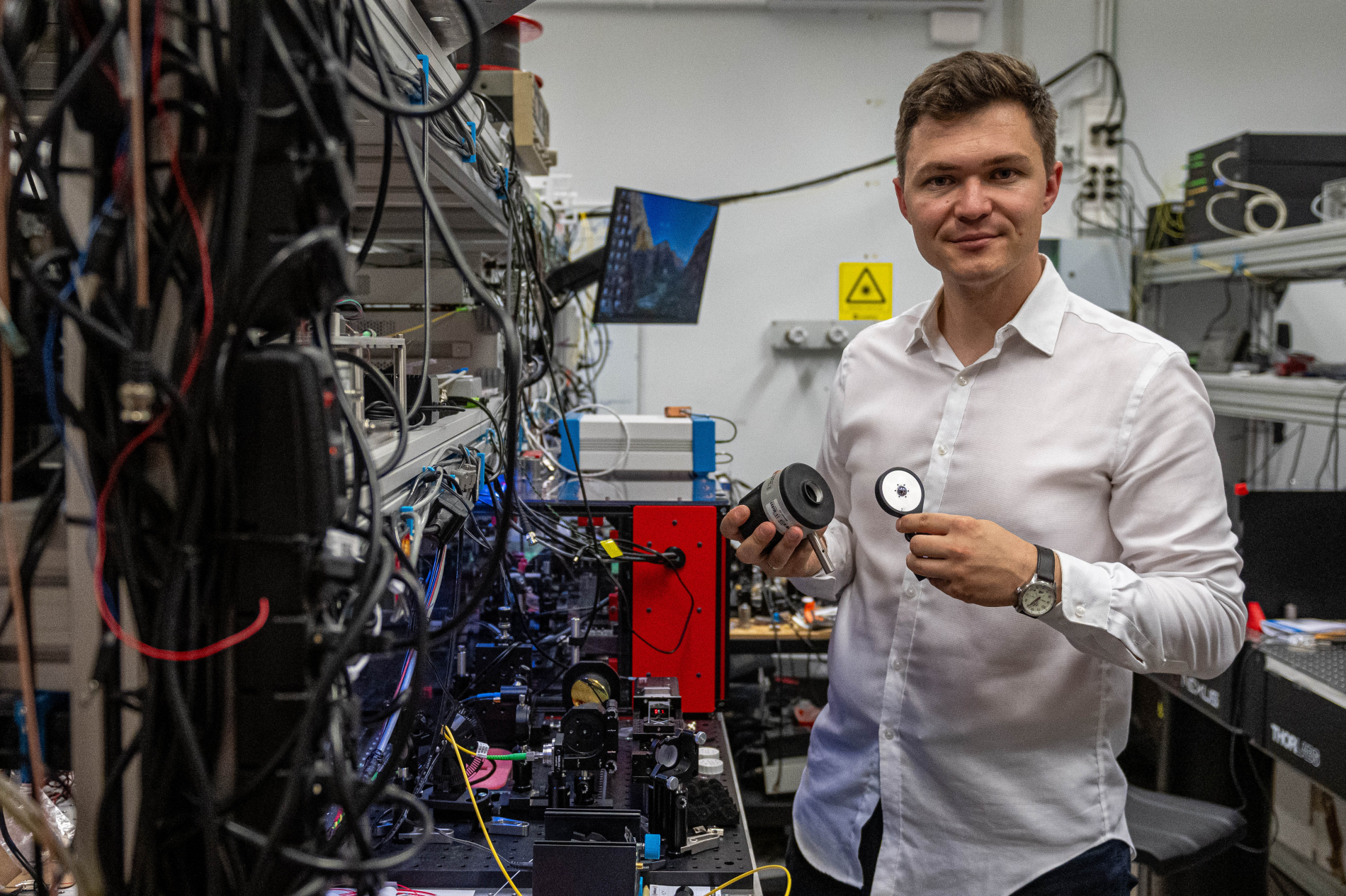 One of the most interesting areas in which terahertz waves can be used, however, is the detection of counterfeit drugs, as they allow the substance being tested to be compared with the original sample. In this way, it is also possible to determine – without opening the packaging – whether a medicine is past its sell-by date and whether it is still suitable for use.
One of the most interesting areas in which terahertz waves can be used, however, is the detection of counterfeit drugs, as they allow the substance being tested to be compared with the original sample. In this way, it is also possible to determine – without opening the packaging – whether a medicine is past its sell-by date and whether it is still suitable for use.
Terahertz waves could also find application in the study of paintings, which is because they make it possible to separate the individual layers of paint and sketches on the canvas and thus see how the piece of art was created.
A big problem in using this type of solution more widely, however, is the lack of appropriate technology, as at present, the use of terahertz waves is in many cases limited to laboratory conditions and requires specialised apparatus. It is this challenge that Łukasz Sterczewski, PhD, Eng. wants to tackle on his project.
“You could say that my research aims to democratise this technology, that is, to give people access to a unique spectral range. I proposed to miniaturise and create portable devices that work at room temperature, whose use would be simple and efficient,” he explains. “We’re talking about a system that will use a single pixel for scanning and would be the size of a torch. To be successful, however, we need to overcome many barriers, such as the problem of optical coupling or proper tuning of laser parameters, where small changes can have a massive impact on the results obtained,” he adds.
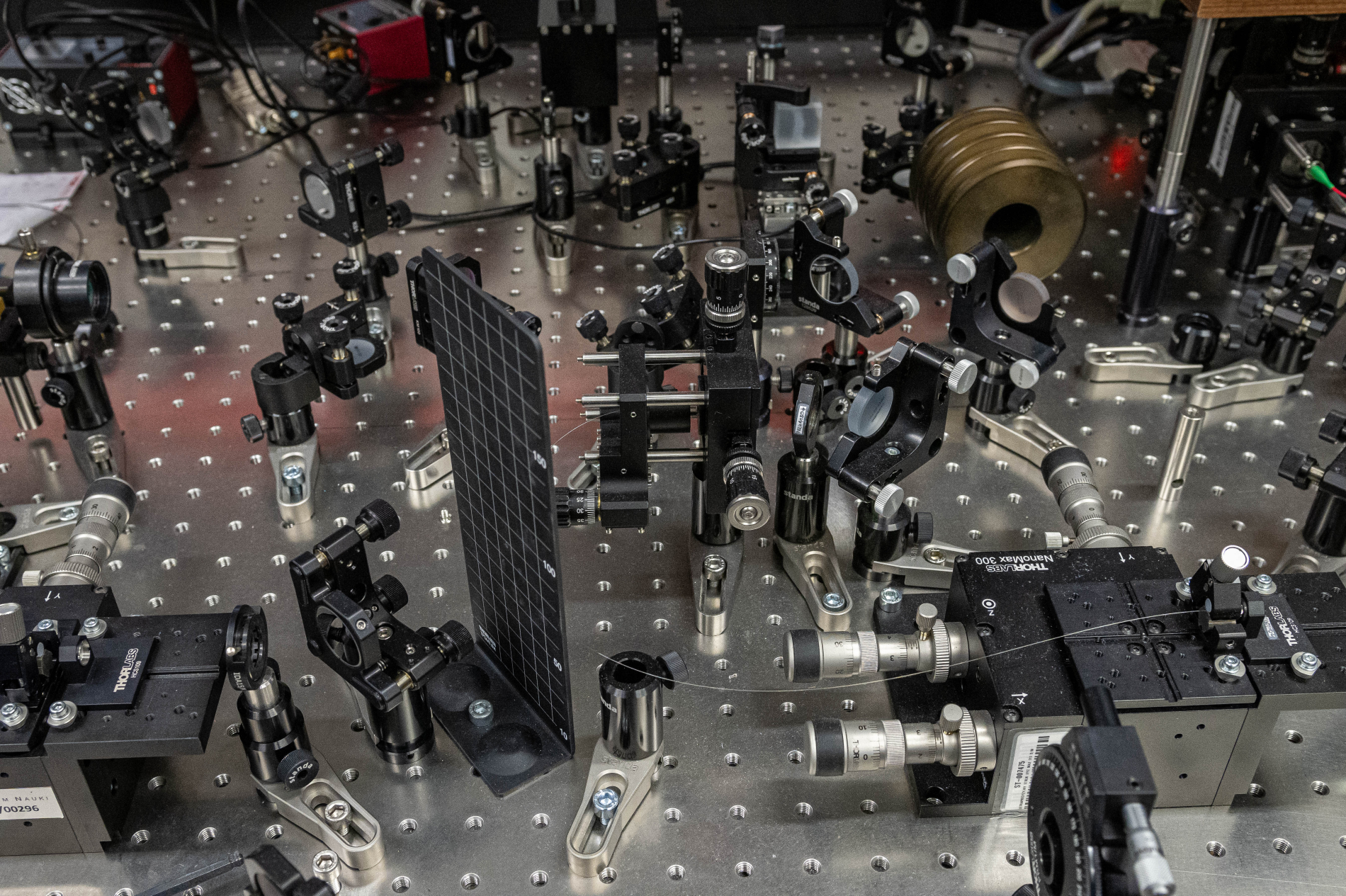 For the project, the scientist would like to form an international interdisciplinary team, including a materials engineer, a semiconductor physicist, an electronics engineer, and perhaps a chemist.
For the project, the scientist would like to form an international interdisciplinary team, including a materials engineer, a semiconductor physicist, an electronics engineer, and perhaps a chemist.
“The days of Leonardo Da Vinci, when you solved problems on your own, are over as far as experimental science is concerned. Cooperation, including international cooperation, is essential with such projects, as the meeting of specialists working in different environments daily creates a positive explosive mix, allowing you to look at emerging problems from multiple angles and producing very good results,” emphasises the grant winner.
Research will be conducted at the laboratories of the Department of Field Theory, Electronic Circuits and Optoelectronics. Even before submitting his application to the European Research Council, our researcher initiated the development of the Terahertz Optoelectronics Laboratory, or as he puts it, the “dream lab”. It is being built with the infrastructural support of the National Laboratory of Photonics and Quantum Technologies (NLPQT), a consortium made up of the country's leading research entities concerned with quantum computing and engineering, among other fields of science.
It houses unique devices including a superconducting bolometer, a device that allows the detection of even the smallest amounts of THz radiation, optical cryostats that allow samples to be kept at very low temperatures, and various types of lasers that emit light in colours invisible to the human eye.
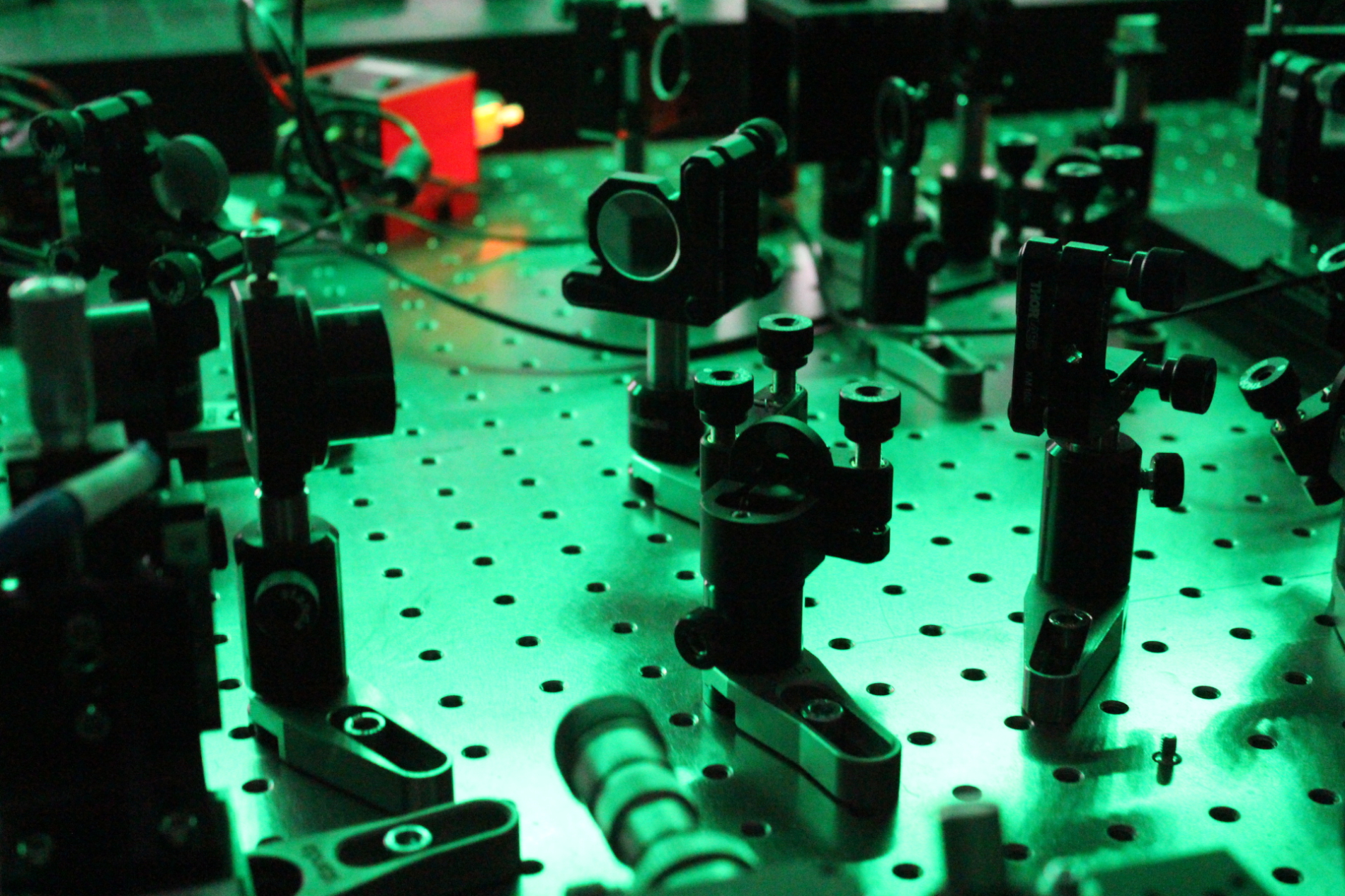 Winning an ERC grant requires an enormous amount of preparation on the part of the researcher, and the procedure itself is lengthy, comprising several stages. According to Łukasz Sterczewski, work does not start a moment before you apply – you have to design your entire research career to obtain an ERC grant. This is because as far as the ERC competition goes, the projects are evaluated by external experts from all over the world, to whom you also have to prove your independence and experience in international research.
Winning an ERC grant requires an enormous amount of preparation on the part of the researcher, and the procedure itself is lengthy, comprising several stages. According to Łukasz Sterczewski, work does not start a moment before you apply – you have to design your entire research career to obtain an ERC grant. This is because as far as the ERC competition goes, the projects are evaluated by external experts from all over the world, to whom you also have to prove your independence and experience in international research.
“I had the unique opportunity to carry out research in various foreign laboratories. Gaining recognition led to invitations to further projects and participation in prestigious conferences. My advantage was that I already had access to the right research infrastructure. Moreover, I received a great deal of support from the staff of Wrocław Tech’s Project Department, who also believed in my idea,” he points out.
He sent his application to the ERC in October 2022 and then, in March 2023, was informed that he had qualified for the next stage, at which point, as he says, “the real adventure of preparing for the final interview with the experts began”.
“It was probably the most difficult type of presentation I've had to deal with. In five minutes, I had to convince a panel of experts that my project was unique and groundbreaking. My previous training under public speaking specialists and English classes with a native speaker helped me a lot. I’m very happy that everything worked out. There are a lot of organisational issues ahead of me now, and the project will officially start on December 1,” he explains.
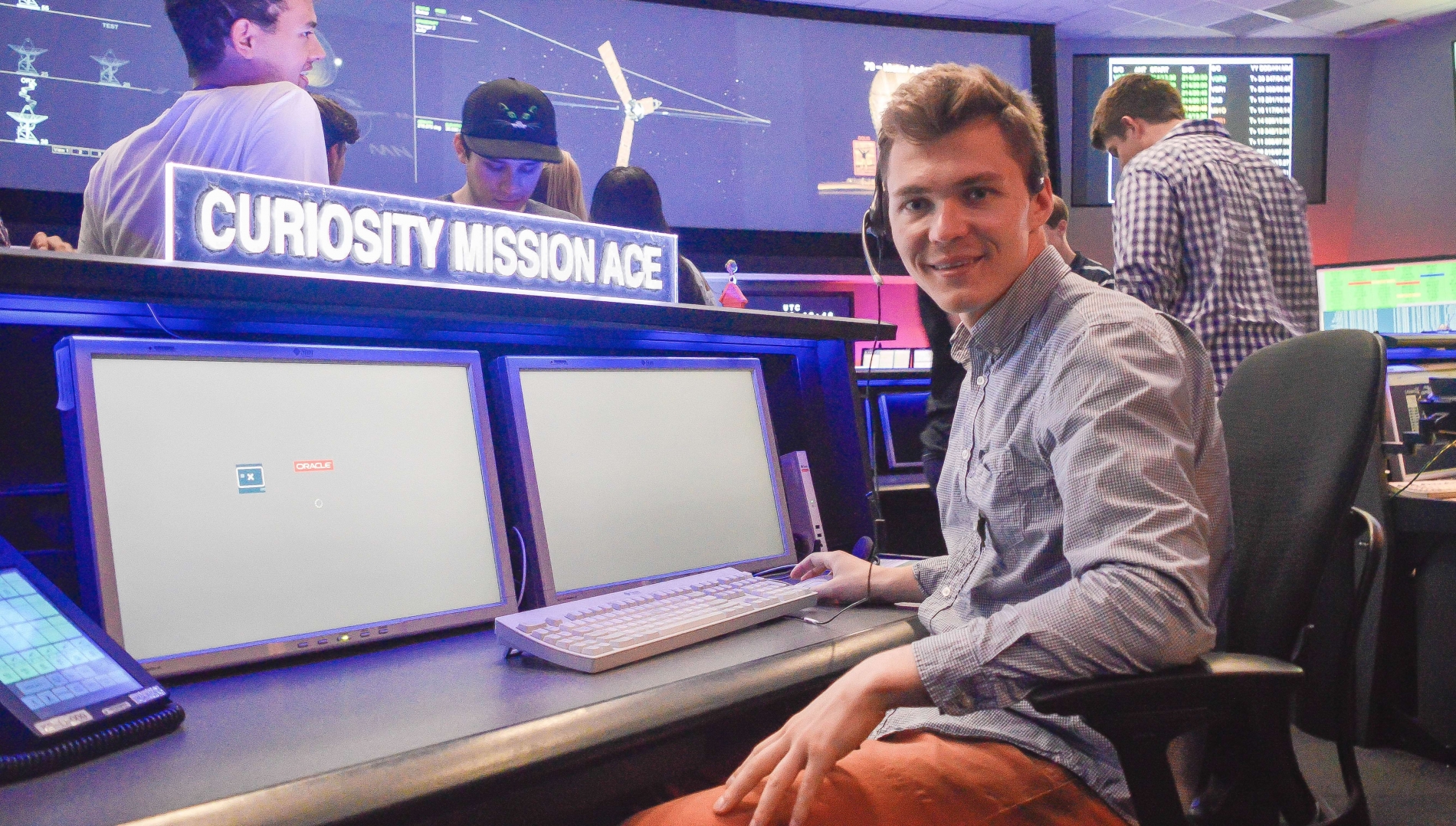 Łukasz Sterczewski, PhD, Eng. obtained his engineering degree in automatics and robotics at Wrocław Tech’s then Faculty of Electronics and completed his MSc studies with distinction on the "Advanced Applied Electronics” degree programme, delivered in English. In 2018, he received a doctorate of technical sciences in the field of telecommunications for the distinction-winning thesis entitled “Signal Processing in Terahertz and Mid-infrared Spectroscopy with Frequency Combs”.
Łukasz Sterczewski, PhD, Eng. obtained his engineering degree in automatics and robotics at Wrocław Tech’s then Faculty of Electronics and completed his MSc studies with distinction on the "Advanced Applied Electronics” degree programme, delivered in English. In 2018, he received a doctorate of technical sciences in the field of telecommunications for the distinction-winning thesis entitled “Signal Processing in Terahertz and Mid-infrared Spectroscopy with Frequency Combs”.
He is the winner of grants and scholarships including the Kościuszko Foundation's grant for scientific research conducted in the USA in 2017, the Scholarship of the Minister of Science and Higher Education for outstanding achievements in the academic year 2017/2018, and the Start scholarship awarded by the Foundation for Polish Science to the most talented young scientists. He has worked, among other places, at Princeton University, NASA Jet Propulsion Laboratory, and California Institute of Technology (Caltech).
Together with Jarosław Sotor, PhD, Dsc, Eng., Professor at the University, he developed a new methodology for pulsed laser diagnostics, with the the results of their research on two-photon imaging of soliton dynamics in June 2023 published in Nature Communications.
“I’ve never dreamt of such a career. I went to university and planned to become an automation specialist and work in industry, which seemed interesting, too. At some point, however, I became fascinated by terahertz waves, even though I’d previously been ignorant about light and thought that optics was the most boring field. What could be so interesting about lenses anyway?” reminisces Łukasz Sterczewski, PhD, Eng. “I think the fascination with science grows slowly. Nothing happens suddenly here. I’m still a budding scientist because there are no shortcuts here and a career in science takes decades to build,” he stresses.
And what advice does he have for people just considering embarking on a career as a researcher?
“You have to avoid believing that success will come easily, and the fundamental part is hard work in the laboratory. Risky projects that nevertheless have a good chance of success should not be feared either. It’s also a good idea to find a research group that will help you develop and not be afraid to leave the country. And above all, learn to accept criticism and learn from it to find motivation to work even harder,” he points out.
Our site uses cookies. By continuing to browse the site you agree to our use of cookies in accordance with current browser settings. You can change at any time.